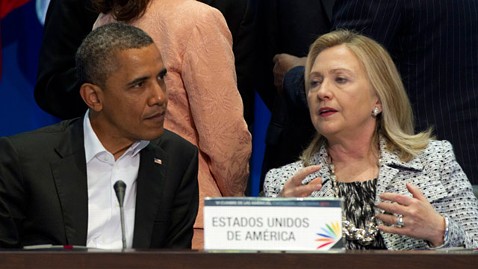RAMALLAH, West Bank (Reuters) - Forensic experts took samples from Yasser Arafat's buried corpse in the West Bank on Tuesday, trying to determine if he was murdered by Israeli agents using the hard-to-trace radioactive poison, Polonium.
Palestinians witnessed the funeral of their hero and longtime leader eight years ago, but conspiracy theories surrounding his death have never been laid to rest.
Many are convinced their icon was the victim of a cowardly assassination, and may stay convinced whatever the outcome of this autopsy. But some in the city of Ramallah where he lies deplored the exhumation.
"This is wrong. After all this time, today they suddenly want to find out the truth?" said construction worker Ahmad Yousef, 31, who stopped to watch the disinterment, carried out behind a wall of blue plastic near the Palestinian presidency headquarters.
"They should have done it eight years ago," he said.
French magistrates in August opened a murder inquiry into Arafat's death in Paris in 2004 after a Swiss institute said it had discovered high levels of polonium on clothing of his which was supplied by his widow, Suha, for a television documentary.
"Samples will be taken according to a very strict protocol and these samples will be analyzed," said Darcy Christen, spokesman for Lausanne University Hospital in Switzerland that carried out the original tests on Arafat's clothes.
"In order to do these analyses, to check, cross-check and double cross-check, it will take several months and I don't think we'll have anything tangible available before March or April next year," he added.
Arafat was always a freedom fighter to Palestinians but a terrorist to Israelis first, and a partner for peace only later. He led the bid for a Palestinian state through years of war and peacemaking, then died in a French hospital aged 75 after a short, mysterious illness.
No autopsy was carried out at the time, at the request of Suha, and French doctors who treated him said they were unable to determine the cause of death.
But allegations of foul play immediately surfaced, and many Palestinians pointed the finger at Israel, which confined Arafat to his West Bank headquarters in Ramallah for the final two and a half years of his life after a Palestinian uprising erupted.
Israel denies murdering him. Its leader at the time, Ariel Sharon, now lies in a coma from which he is expected never to awake. Israel invited the Palestinian leadership to release all Arafat's medical records, which were never made public following his death and still have not been opened.
FRENCH INVESTIGATORS
Polonium, apparently ingested with food, was found to have caused the death of former Russian spy Alexander Litvinenko in London in 2006. But some experts have questioned whether Arafat could have died in this way, pointing to a brief recovery during his illness that they said was not consistent with radioactive poisoning. They also noted he did not lose all his hair.
Eight years is considered the limit to detect any traces of the fast-decaying polonium and Lausanne hospital questioned in August if it would be worth seeking any samples, if access to Arafat's body was delayed as late as "October or November."
Not all of Arafat's family agreed to the exhumation, and his wife Suha chose not to attend the operation she had prompted.
Working in parallel with the forensic team, French magistrates were in Ramallah this week to ask if members of Arafat's inner circle might be able to shed light on his death.
One source told Reuters the French had a list of 60 questions, and had questioned one man for five hours.
Many Palestinians acknowledge that a Palestinian would almost certainly have had to administer any poison, wittingly or unwittingly.
(Writing by Crispian Balmer; Editing by Douglas Hamilton and Tom Pfeiffer)










